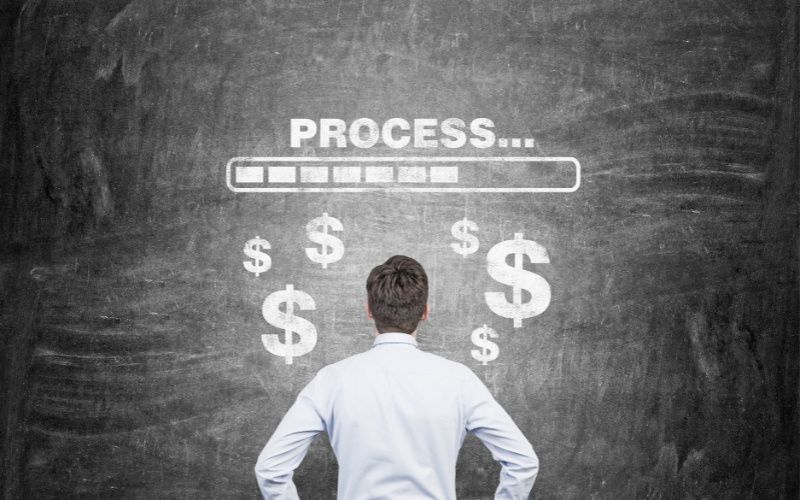Last Updated: October 12, 2023
Choosing a Debt Consolidation Company That Meets Your Needs

Debt is a severe issue indeed and so when choosing a debt consolidation company to help you out, it is imperative that you are fully aware of exactly what it is you are looking for in a debt management company. You will need to be especially clear on the skills and expertise that you seek.
There are basically two different recommendations and one of the two will usually be suggested to you by experts at the debt company that you opt to work with. The two are debt settlement and debt management. As we unpack the two primary recommendations for managing debt, having a foundational understanding of
what debt consolidation entails can enhance your decision-making.
Understanding Debt Consolidation and Debt Settlement
You need to understand exactly what debt consolidation is and also what debt settlement is and which of the two is a better option for your particular case. To understand debt consolidation you will need to grasp the fact that debt consolidation loans are used for debt consolidation.
In this particular case, the client takes out a single new loan to pay off all their old debts. One of the advantages of this arrangement is that the pressure of having to pay off many different loans is reduced to one debt repayment amount that you need to come up with every month.
Now debt settlement is very different. This is where the client decides that instead of taking out a debt consolidation loan they will register with a debt consolidation company which will study their particular situation and offer possible solutions to the debt crisis.
If they recommend debt management to you then what it means is that you will be set up with a single monthly payment which will be divided amongst the different creditors monthly. Debt companies usually negotiate with the client’s creditors so that the interest is reduced.
With debt settlement, the idea is to reduce the principal sum owed as well as the interest. Usually, this is the alternative that allows for the fastest debt repayment, faster than in debt management or with the aid of a debt consolidation loan.
However, it also has its disadvantages like the fact that it will do serious damage to your credit score and rating. Understand How Does Debt Consolidation Affect Your Credit Score? To navigate through this process wisely. Taking a new loan to pay off previous ones is a common strategy, but pondering whether a debt consolidation loan aligns with your financial health is essential
Tips on Choosing a Debt Consolidation Company

Look for Expertise and Experience
When researching debt consolidation companies, you want to look for expertise and substantial experience in providing debt relief services.
Some key indicators to look for include:
- Number of years in business - Look for companies with 5+ years (longer is better). This suggests they have refined processes and extensive experience negotiating with diverse creditors.
- Education and certifications - Seek companies whose staff has certifications like Certified Debt Specialist (CDS) or Accredited Financial Counselor (AFC). This demonstrates specialized training.
- Client base served - Ask how many clients they've assisted with debt relief. Larger numbers indicate established expertise. For example, over 10,000 clients served.
- Range of creditor experience - See if they have experience negotiating settlements with major creditors like Chase, Bank of America, Citibank, etc. Broad creditor experience improves leverage.
- Customized services - Do they offer personalized assessments and program plans tailored to each client's unique financial situation? One-size-fits-all plans are less effective.
- Legal compliance - Are they properly licensed in your state and compliant with all applicable laws governing debt relief practices? This is a must.
Understand the Debt Relief Options Offered
Before choosing a company, understand what debt relief solutions they offer to determine if they provide the services you need.
Options Offered:
- Debt settlement - Negotiating directly with creditors/collectors to settle accounts for less than the full balance. This provides the most debt reduction.
- Debt consolidation loans - Taking out a new loan to pay off multiple debts and reduce overall interest rates. Easier to manage one payment.
- Debt management plans - The company works with creditors to negotiate reduced interest rates, waived fees and establishes an affordable monthly payment plan.
- Credit counseling - Advice and guidance from certified credit counselors on improving credit and managing finances more effectively.
- Bankruptcy assistance - Help determine if bankruptcy is the best option and guidance through the bankruptcy legal process.
After you have familiarized yourself with the various debt repayment programs, you will then need to start looking at the different debt consolidation companies. The best debt consolidation companies offer multiple solutions and will help you determine which option is right for your specific financial situation. Make sure to get all your questions answered upfront.
Questions to Ask Potential Debt Consolidation Companies
Choosing the right debt consolidation company for your needs is crucial. Make sure to ask plenty of questions upfront to vet each company's services, fees, and track record.
Here are some important questions to consider asking:
Experience and Longevity
- How long have you been in business providing debt relief services? Look for several years (5+ ideal). New companies may not have proven systems and results.
- How many clients have you successfully assisted with debt consolidation and settlement? Get details on the number of clients served.
- Can you share success stories or testimonials from past clients I can contact for references? Speaking to past clients can give you a better sense of their service.
Fees and Cost Structure
- What fees do you charge and how are they structured? Reputable companies should not charge any upfront fees before settling debts. Fees should only be based on a percentage of enrolled debt if settlements occur.
- Are there any other costs or charges beyond your main fees? Watch for hidden fees.
- If you don't end up settling my debts, do I still owe you any fees? Avoid companies that charge you regardless of outcomes.
Debt Relief Processes
- What debt relief solutions do you offer (settlements, consolidation loans, management plans)? Make sure they provide the options you need.
- What specific strategies and approaches will you use to negotiate debt settlements on my behalf? Get details on their processes to vet their efficacy and legality.
- What have your average settlement amounts been as a percentage of enrolled debt? Higher settlement percentages are better.
- What timeline can I expect for becoming debt-free if I work with you? Make sure the timeline aligns with your financial goals.
To ensure that you choose a genuine company you will have to do some work checking them out where you will need to ask key questions like how long they have been in business and what kind of expertise they have that will be useful to you as you seek to reduce your debt.
Checking Credentials
Always verify the credentials and reputation of any debt consolidation company before enrolling:
- Check with the Better Business Bureau to see if any complaints have been filed.
- Verify state licensure for operating as a debt settlement company.
- Look for accreditation from organizations like CDRI Accredited Member.
- Search online for customer reviews and feedback on their services.
- Ask for references from past clients you can contact.
Avoiding Scams
Be on the lookout for debt consolidation scams. Warning signs include:
- Pressure to sign up immediately or exaggerated claims of settlement abilities.
- Requests for upfront fees before settling any debts.
- Telling you to stop communicating with creditors.
- Guarantees they can eliminate debt or improve your credit score.
- Lack of proper licensing and credentials.
- Missing contact info or physical business addresses.
The Debt Consolidation Process
The debt consolidation process can vary depending on the specific debt relief solutions offered by the company you choose.
But in general, the process follows these key steps:
- Initial consultation - During your initial call or meeting, the company will review your financial situation in depth, including income, expenses, debts owed, interest rates, minimum payments, and budget. This information helps them understand your goals and make an informed recommendation.
- Review debt relief options - Based on your situation, the company will explain your different debt relief options like settlement, consolidation loans, management plans, etc., and the pros and cons of each. They will make a suggestion on the best path forward for you.
- Enrollment and paperwork - If you decide to enroll, you'll fill out applications, agree to terms, and complete any required paperwork. This is when you'll find out full details on fees/costs involved. Make sure to get written fee agreements.
- Open dedicated account - To protect your funds and facilitate payments, a dedicated account will be opened in your name, but managed by the company. Monthly payments are deposited here before any fees are taken out.
- Creditor outreach - The debt relief company will contact your creditors and collectors to initiate negotiations. They gather the information needed to create settlement offers and payment plans.
- Settlement negotiations - Experienced negotiators will work to secure favorable debt settlements with each creditor. This can take some time to finalize agreements acceptable to all parties. Most creditors will agree to monthly payment arrangements.
- Settlement execution - As negotiated settlements are approved, the company pays the settled amount to creditors from your dedicated account. Accounts are closed and balances are marked "settled in full" once paid.
- Ongoing support - Your credit counselors will provide ongoing budgeting support, answer any questions, and help address any creditor issues throughout the debt relief process.
It is also important that you end up with debt consolidation companies that understand the fact that a crucial aspect of dealing with bed debt is to address the spending and money habits that landed the client into trouble in the first place. If this is not done then the chances of any debt program being a success will be nil and it hardly matters how good and skillful the debt consolidation companies you are dealing with are.
Is Debt Consolidation Right for You?
Deciding if debt consolidation is the right option for your situation depends on a few key factors:
- Your current debt load - Debt consolidation works best for those with high credit card and unsecured debt balances spread across multiple accounts and creditors.
- Your ability to pay - Consolidation requires having enough income to make the negotiated monthly payments in a debt management plan. Make sure payments align with your budget.
- Your credit profile - A debt management plan may be preferred for those with very poor credit seeking to rebuild credit scores. Settlements may lower your score initially.
- Your savings - If you have available savings, debt settlement could be an option for lump-sum payoffs at reduced amounts. If not, management plans allow gradual repayment.
- Your goals - Do you simply want to be debt-free quickly by settling accounts? Or do you need an option that leaves accounts open and reforms credit? Different goals may dictate your approach.
Analyze your specific financial situation, debts owed, income, savings, and end goals. This will determine if debt consolidation is the most effective debt relief solution for your needs compared to other options.
FAQs
Conclusion
The decision to undergo debt consolidation should not be taken lightly given the long-term commitment required. However, partnering with the right debt relief company can provide the expertise, savings, and support needed to become debt-free. Consolidating multiple debts into one personalized and affordable monthly payment is preferable to juggling numerous payments and high-interest rates across different creditors.
For those disciplined enough to stick to the negotiated payment plan, debt consolidation provides a proven pathway to financial freedom. Just be sure to thoroughly research companies, understand all options available, and enroll with a reputable provider committed to your financial success. Being clear on the expertise you're looking for in managing your debt is key, and exploring different avenues to alleviate your financial burden can be an enlightening step.
If you are struggling with overwhelming debt and want to explore your debt relief options, Pacific Debt Relief offers a
free consultation to assess your financial situation. Our debt specialists can provide objective guidance relevant information and support to help find the right debt relief solution.
Reduce Your Credit Card Debt By Up to Half

BBB Reviews | 4.9/5.0 Rating









 Do Not Sell My Personal Information
Do Not Sell My Personal Information